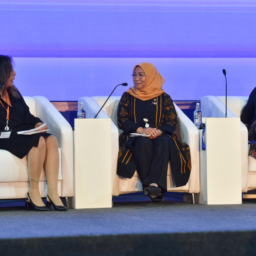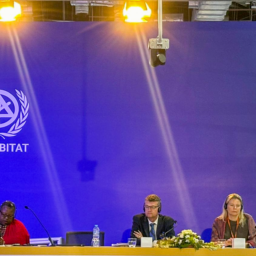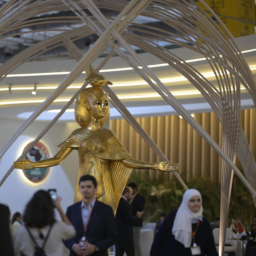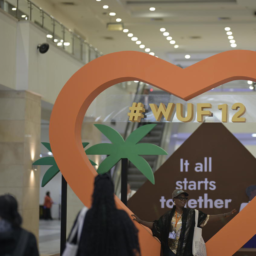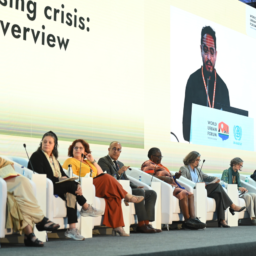Cairo, 7 November 2024
During the 12th session of the World Urban Forum (WUF) in Cairo, global urban development practitioners gathered to discuss innovative urban legislation as a solution to mounting urban challenges. Representatives from the Socialist Republic of Viet Nam, the Kingdom of Saudi Arabia, and UN-Habitat shared insights on advancing sustainable development through legislative reforms. The session, titled “Pioneering Urban Law in the Socialist Republic of Viet Nam and Knowledge Sharing on Urban Legislation for Sustainable Development in the Kingdom of Saudi Arabia”, highlighted the transformative potential of effective urban governance.
Key Urbanization Challenges
Viet Nam: A Rapidly Urbanizing Nation
Hon. Chuongban Guyan, Vice Minister of Construction, underscored that 43% of Viet Nam’s population resides in urban centers, with approximately 900 municipalities driving significant GDP contributions. However, rapid urbanization has led to several challenges:
- Horizontal urban sprawl that strains resources.
- Aging infrastructure unable to meet contemporary demands.
- Climate resilience gaps that leave cities vulnerable to environmental threats.
- Disjointed systems and insufficient private-sector involvement, which hinder integrated development.
Saudi Arabia: Outdated Regulations and Coordination Gaps
Hon. Fahad al-Mutlak, Deputy Minister of Urban Planning and Land, identified similar issues in Saudi Arabia:
- Inefficient land use and outdated urban regulations.
- Environmental degradation and unchecked urban sprawl.
- Stakeholder coordination gaps, complicating sustainable urban planning.
Both nations emphasized the urgent need for modernized laws to address these barriers.
Innovative Solutions in Urban Legislation
Viet Nam: Tailored Urban Development Management Law
Viet Nam is introducing the Urban Development Management Law, a reform designed to:
- Establish city-specific policies tailored to varying urban needs.
- Enhance governance by integrating social and economic priorities.
- Categorize cities by size and resource requirements, ensuring efficient allocation.
Saudi Arabia: The Spatial Planning Act (SPA)
Saudi Arabia’s Spatial Planning Act (SPA) aligns with the nation’s Vision 2030, targeting:
- Sustainable land use to minimize environmental degradation.
- Territorial cohesion for balanced development.
- Inclusive governance and adaptable urban policies.
The SPA leverages global benchmarks, ensuring adaptability to evolving urban dynamics while prioritizing inclusivity and economic diversification.
Insights from Experts
Dr. Maria Mousmouti, from the Institute of Advanced Legal Studies, stressed the importance of practical legislation design. She highlighted:
- The need for measurable objectives tailored to local contexts.
- Avoiding overambitious laws that lack implementability within existing resources.
- Examples of legislative failures that underscore the necessity of balance between ambition and realism.
Actionable Takeaways
- Regular Legislative Reviews:
UN-Habitat will support Viet Nam and Saudi Arabia with periodic evaluations to align urban laws with Sustainable Development Goals (SDGs). - Collaboration and Knowledge Sharing:
Both nations emphasized working with international organizations like UN-Habitat to promote inclusive planning systems using tools like the UN Planning Law Assessment Framework. - Global Benchmarking:
Adopting global best practices while incorporating local adaptations was highlighted as a model for other nations tackling similar urbanization challenges.
Key Messages and Next Steps
The dialogue concluded with a call for international collaboration, stressing the importance of adaptive urban legislation to bridge global commitments, such as the New Urban Agenda, with local realities.
Key outcomes included:
- Addressing structural inefficiencies through innovative laws.
- Fostering inclusive governance for equitable urban growth.
- Demonstrating that resilient urban legislation is a cornerstone of sustainable development.
A Launchpad for Urban Transformation
The Socialist Republic of Viet Nam and the Kingdom of Saudi Arabia exemplify how forward-thinking laws can shape urban environments that thrive in harmony with their people and the planet. These efforts are not just milestones—they set the stage for a new era of resilient and inclusive cities.
Learn more:



